Sports photography is all about seizing the thrilling moments of action, whether on the field, court, or track. As a beginner photographer, you may find this genre both exciting and challenging. To help you dive into sports photography with confidence, this article will cover the fundamental tips on camera settings, gear and composing the best shot. We hope these tips help to get you started!
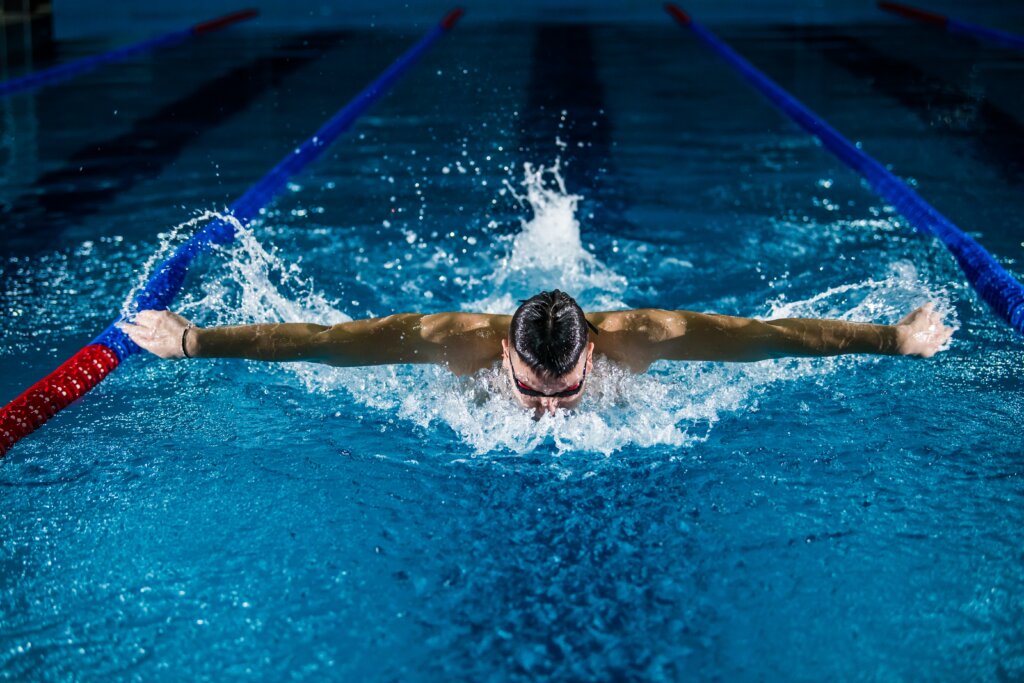
Understanding Camera Settings
Camera Settings: Start with a fast shutter speed to freeze the action. For most sports, a shutter speed of at least 1/500th of a second is a good starting point. Use the sports mode on your camera or experiment with shutter priority mode (S on your camera’s dial) to ensure those crucial moments are captured sharply.
Aperture: A wide aperture (small f-number) allows more light into your lens and helps to blur the background, making your subject stand out. But be mindful of the depth of field – if you go too wide, you might miss some action. An f/2.8 to f/5.6 range can work well for sports. This free camera basics article on aperture is a helpful place to start if you’re looking for more in-depth learning about what aperture means, how it can affect our photos, how it’s measured and how to control it.
ISO: In outdoor sports, you can use a lower ISO for better image quality, typically 100-400. For indoor or low-light situations, you may need to increase your ISO (800-1600) to maintain a fast shutter speed and avoid motion blur.
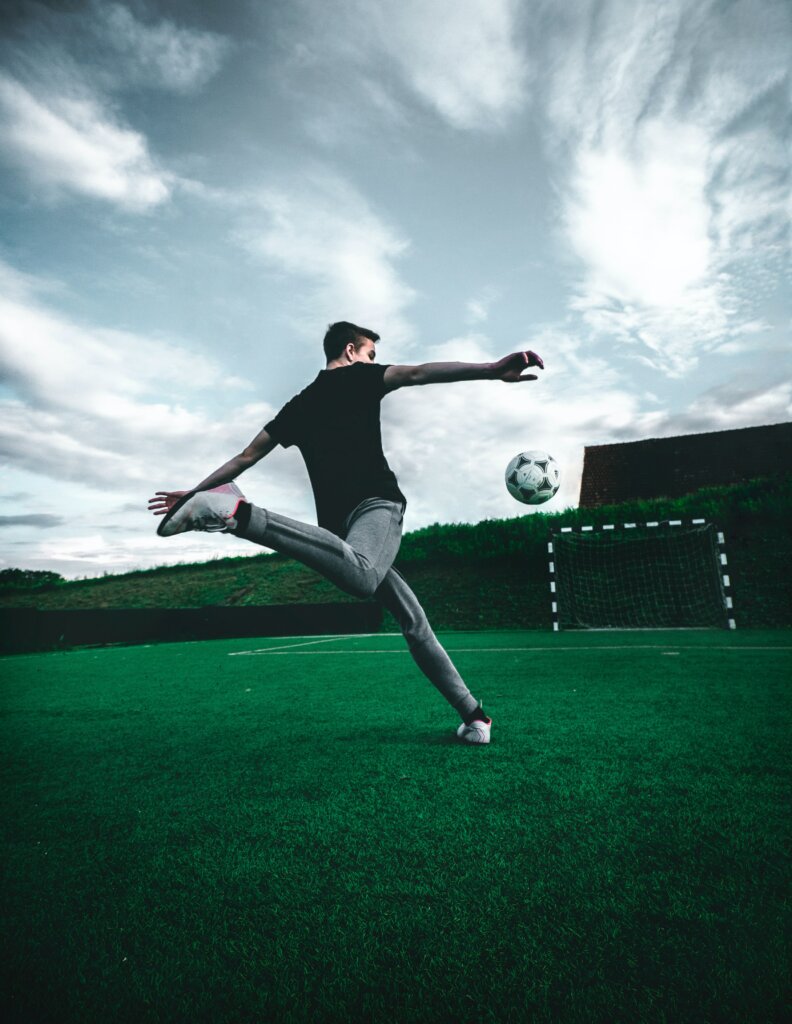
Focusing: Use continuous autofocus (AI Servo for Canon, AF-C for Nikon) to track moving subjects. This mode keeps your subject in focus as it moves closer or farther from your lens.
For a thorough rundown and a better understanding of the camera settings you need to capture moving objects and subjects, check out this free guide here.
Essential Gear for Sports Photography
While professional photographers often have a range of high-end gear, you can still achieve great results with a basic kit!
Camera: A DSLR or mirrorless camera is ideal for sports photography. However, many advanced compact and bridge cameras can also do a good job.
Lenses: Invest in a telephoto lens with a focal length of at least 200mm. This allows you to capture distant action as if you were right there. A lens with image stabilization can be beneficial for handheld shooting.
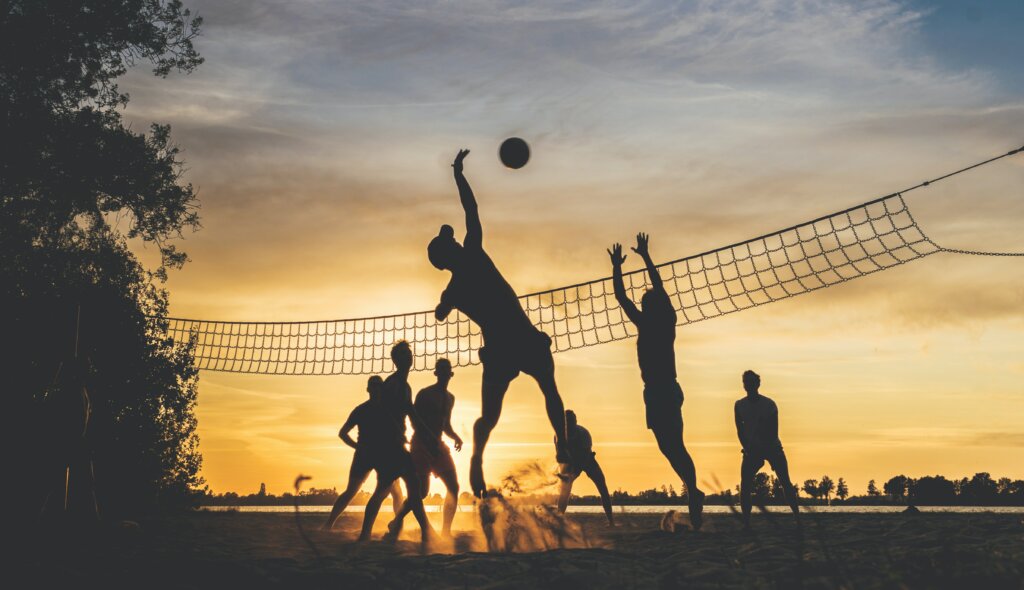
Tripod or Monopod: A must for stability, especially if you’re shooting with heavy telephoto lenses. A monopod offers more mobility, while a tripod ensures rock-steady shots. Check out this helpful article on how to pick between the two types!
Memory Card: High-capacity, fast memory cards are essential to capture multiple shots in quick succession without delays.
Christina Harman has written this helpful article on how to differentiate between the camera gear you need vs what you want.
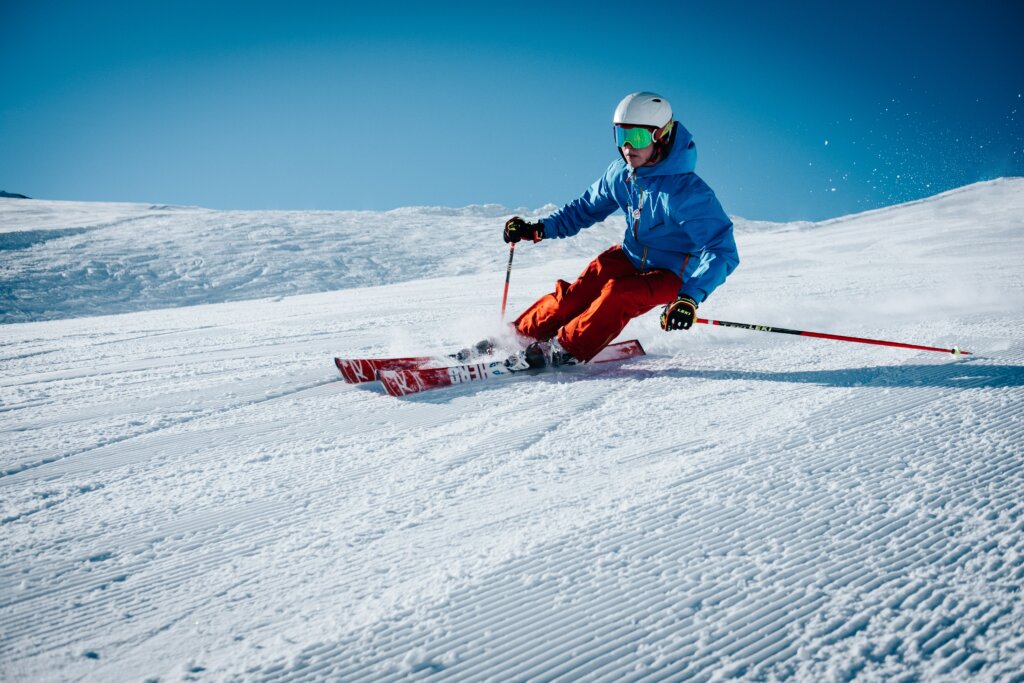
Creating The Best Shot
Now, let’s dive into some practical tips to improve your sports photography skills!
Anticipate the Action: Familiarize yourself with the sport you’re shooting. Learn the key moments and positions of players. This knowledge will help you predict where the action will unfold. If you’d like to learn about capturing sports photography, this piece shares helpful tips on capturing the action of outdoor sports!
Focus on Faces: Faces convey emotions and intensity. Try to capture expressions of athletes, whether it’s the elation of victory or the determination to score.
Continuous Shooting Mode: Use the continuous or burst mode on your camera to take a sequence of shots when the action is fast and unpredictable. This increases your chances of capturing the perfect moment.
Composition: Pay attention to framing. Keep your subject in the frame and consider the rule of thirds. But don’t be afraid to break the rules if it leads to a more dynamic shot. Speaking of the rule of thirds, author Jo Plumridge has written this informative article on this composition rule and how we can apply it to our photos.
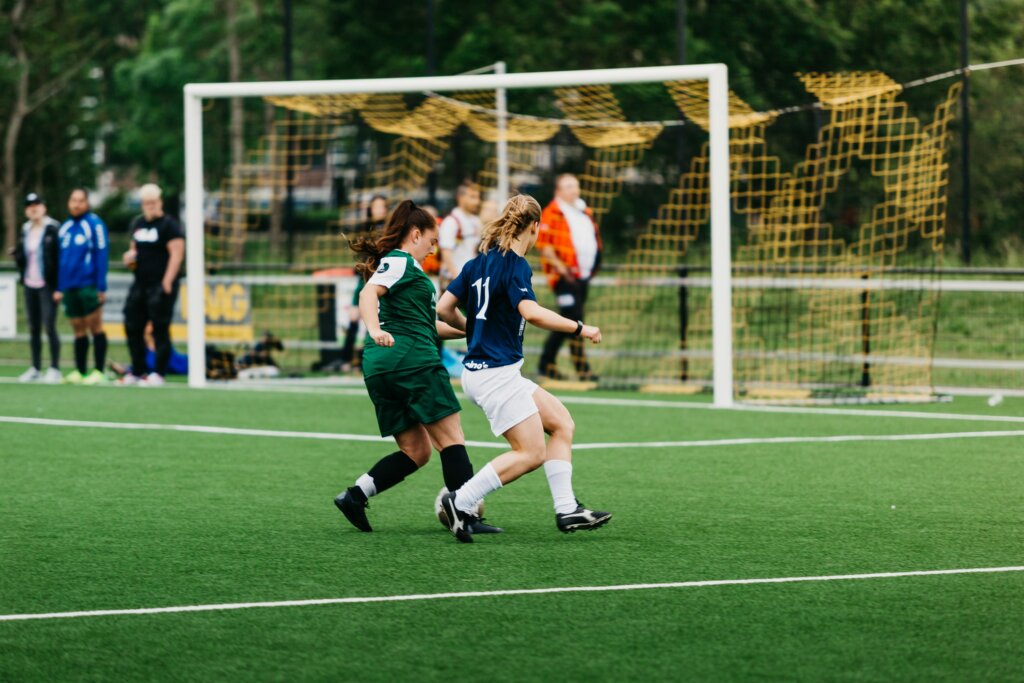
A Final Note
Sports photography can be challenging, but it’s also incredibly rewarding when you capture that perfect action shot! With the right techniques and plenty of practice, you can freeze those thrilling moments and create images that tell the story of the game. So grab your camera, head to the nearest sports event, and start capturing the excitement of the game!
Looking for more?
Ready to boost your photography skills, but overwhelmed by the endless resources online? Not sure where to even begin? We recommend taking a look at Photzy’s Action Cards! With 65 printable project sheets and over 200 photography assignments, you’ll refine your shooting abilities and uncover your personal photographic style. Action Cards, will give you practical tasks crafted to introduce you to new skills and techniques, promising a one-of-a-kind photography adventure. You can grab your copy right here!
